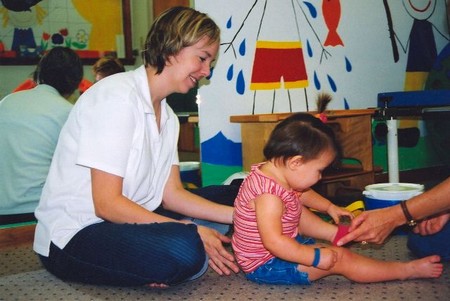A child thrives on frequent praise and recognition. Watch a child receive genuine and heartfelt words of approval from a respected adult—be it parent, grandparent, teacher, or pastor—and you can almost see that child grow an inch on the inside.
“Way to go!”
“Good job!”
“I’m very proud of you.”
A child should be praised for awards received, good grades earned, or games won. A word of praise may be considered a “verbal trophy.” A child’s psyche has abundant shelf space for such honors.
A child should also be praised for behavior that represents a struggle and victory from the child’s perspective. “I’m proud of you for sitting so quietly in church, today. I know it was tough to do, but you did it!”

A child should be praised for behavior the parent wants to see again! “I know you must have wanted to say something when she screamed at you, but I’m proud of you for keeping your cool.” Such compliments are nearly always related to a particular achievement or a specific behavior.
Can we assume, then, that all compliments and words of praise build a child’s self-esteem?
To the contrary, not all praise-giving has a positive effect. Here are some guidelines for the use of compliments and praise.
Your praise must be sincere. Don’t say something if you don’t really mean it. Adults resent insincere compliments and children do, too. Telling your daughter five times a day, “You’re so cute,” is likely to be regarded by your child as meaningless. After a while, your child may think she always looks cute (even when she doesn’t) or that you are blind.
True praise is best expressed privately. Don’t grandstand. Let your child know in a special one-to-one moment how you feel.
Praise your child for those things that you both regard as important.
For praise to be received as praise, the adult must be perceived as sharing the child’s delight at the child’s accomplishment.
Genuine, heartfelt praise for worthy accomplishments has no substitute in building a child’s self-esteem and confidence. Praise is one of the building blocks for establishing a child’s sense of self-worth, and it encourages a willingness to try new activities and more difficult goals.